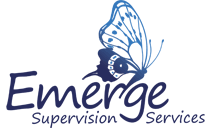I’ve been thinking today of the different ways of addressing professional development. Most professions require members continue to develop their skills, keep up to date with new theories and techniques and reflect on and improve their practice regularly.
There are a range of professional development formats, from informal to formal, and even legislated (such as the Health Practitioners Competence Assurance Act 2003) Employers often also have structures in place to ensure professional development happens regularly such as team training.
My impression from supervisees is that sometimes trying to fit professional development into their busy work lives can be stressful and frustrating. We acknowledge the need for it, but often the options we consider are time consuming, or costly or don’t easily fit our learning style.
Off the top of our heads we might think of courses, workshops, conferences or post graduate papers. Other obvious ways can include supervision, either 1:1 or peer supervision, team professional development – getting a speaker in, study groups, case discussion or skimming through our professional magazine.
So what are some less common ways of ensuring we continue to grow our professional skills?
Book review – often a professional magazine or journal may ask for reviewers to read and comment on a newly published book. There are usually guidelines for the review, and if not you can Google “elements of book reviews” to get some direction. This is a great one if you enjoy reading, and the book is in your area of interest or specialty. Sometimes you might even get to keep the book.
Article review – many of the professional associations have member access to on-line journal catalogues which allow you to search up recent publications in your area of interest.
On-line courses – again some of these might be accessible through your professional association. Over the past couple of years I have done an ethics course on-line. This provides a flexible way of incorporating learning into the times you have available.
Community courses – it is worth considering what might be available to you through your community, that is not necessarily directly related to your work, but may be of value, such as computer skills or public speaking.
Networking – spending time meeting other providers in the community is often part of orientation to a new job, however once we have been in our position for a while it is worth revisiting (literally) to strengthen connections and learn any changes in the organisation. Community and voluntary organisations can be a great resource, and personal links will often get results for your clients that emails won’t achieve.
Critical reflection – using a reflection model to analyse and explore in more depth a situation you have encountered with a client. This can take place on your own, with a peer or in supervision.
Teaching others – giving a presentation to colleagues or a community group, or taking a student or visiting practitioner can offer the opportunity to get clearer on our own understanding of a subject.
By considering a wider range of professional development experiences we may find things which better fit our time, learning style and professional interest.
To explore setting meaningful professional development goals see this earlier blog.



